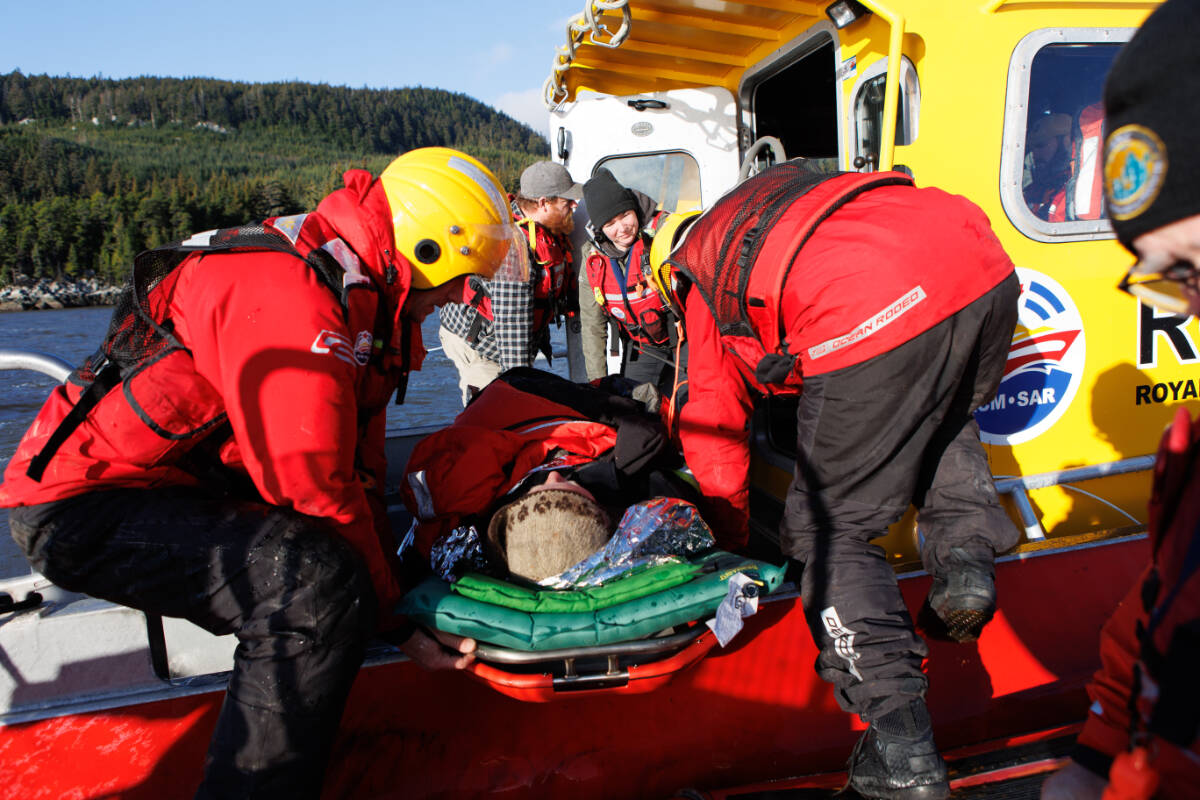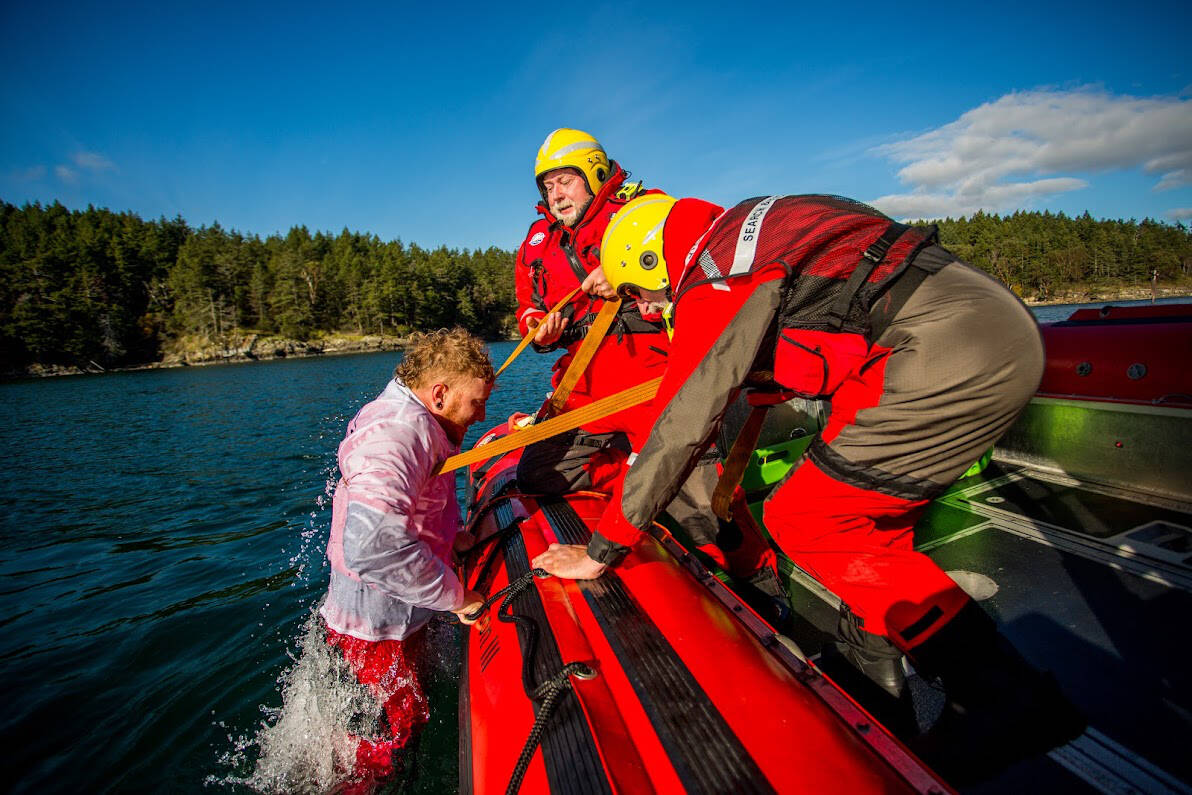When it comes to saving lives on the water, training is critical for marine search and rescue volunteers.
Within the past 12 months, volunteers with the Royal Canadian Marine Search and Rescue (RCMSAR) conducted 432 missions, saving 49 lives and assisting 384 people on the water.
To save lives, more than 16,100 hours are devoted each year to conducting on-the-water training exercises and classroom sessions, which is impossible to do without the support from local communities, corporate donors and individuals like you.
In addition to having the proper safety equipment and fast rescue crafts (vessels), training provides search and rescue (SAR) skills and knowledge, improves safety and builds confidence within marine SAR crews which are all critical to save lives.
From shoreline extraction training in Squamish to restricted visibility exercises in foggy conditions in Comox, and from conducting expanding square search patterns on the water near North Vancouver to mass-casualty training in Victoria, training not only takes time, it also requires funding.
RCMSAR does receive funding from the federal and provincial governments. However, these amounts do not meet their total financial needs, nor are they guaranteed each year. Volunteers must fundraise for their own life-saving equipment, vessels, training and operational costs to keep local stations open. Support from community members like you provides critical training and the equipment needed to save lives.
With the boating season just around the corner, RCMSAR is requesting your help to support volunteer training so they can be ready to answer calls for help in the busy months ahead.
RCMSAR is a registered charity that operates a volunteer marine search-and-rescue service along coastal British Columbia and whose mission is to save lives on the water. Volunteer emergency response crews at 31 stations are on-call 24 hours a day, seven days a week, responding to hundreds of search-and-rescue calls each year. Mechanical breakdown, adrift and disabled vessels alongside medical emergencies and extractions are often top reasons for rescue.
RCMSAR volunteers not only respond to emergencies, they also work to prevent them. Collectively dedicating over 61,000 hours in pursuit of saving lives, these volunteers also share boating safety information with the public, conduct complimentary pleasure craft safety checks in local communities and run a loaner program for kids’ lifejackets at hundreds of docks, beaches, and marinas across the province.
As British Columbians take to the water in the weeks ahead, RCMSAR reminds you to tune your VHF marine radio to Channel 16 or use your cell phone and call *16 or #727 – or simply dial 9-1-1 – in an emergency and be sure to call for help immediately. To improve your safety on the water, always wear your lifejacket, boat sober, have a sail plan, bring the required safety equipment and take a boating course.
Visit https://rcmsar.com to learn more, make a charitable donation or purchase a 50/50 raffle ticket online by visiting https://rcmsar.rafflenexus.com.
***
Established in 1978, the Royal Canadian Marine Search and Rescue is a registered charity that saves lives on the water supporting the Canadian Coast Guard, the Canadian Armed Forces, the Province, and local communities and other first responder agencies when needed.
Training year-round, RCMSAR volunteers are on-call 24 hours a day, serving communities across Vancouver Island, the north coast and Haida Gwaii, along the Sunshine Coast, the Lower Mainland, and inland waters of the Shuswap.


